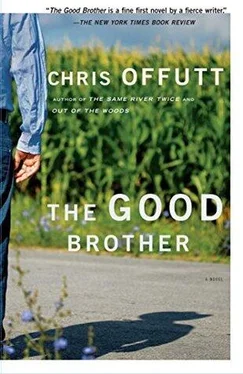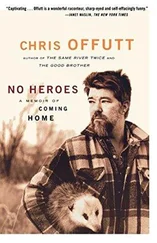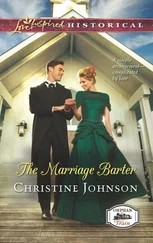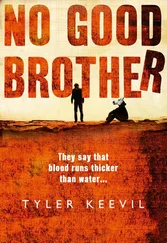Chris Offutt - The Good Brother
Здесь есть возможность читать онлайн «Chris Offutt - The Good Brother» весь текст электронной книги совершенно бесплатно (целиком полную версию без сокращений). В некоторых случаях можно слушать аудио, скачать через торрент в формате fb2 и присутствует краткое содержание. Год выпуска: 2016, Издательство: Simon & Schuster, Жанр: Современная проза, на английском языке. Описание произведения, (предисловие) а так же отзывы посетителей доступны на портале библиотеки ЛибКат.
- Название:The Good Brother
- Автор:
- Издательство:Simon & Schuster
- Жанр:
- Год:2016
- ISBN:нет данных
- Рейтинг книги:3 / 5. Голосов: 1
-
Избранное:Добавить в избранное
- Отзывы:
-
Ваша оценка:
- 60
- 1
- 2
- 3
- 4
- 5
The Good Brother: краткое содержание, описание и аннотация
Предлагаем к чтению аннотацию, описание, краткое содержание или предисловие (зависит от того, что написал сам автор книги «The Good Brother»). Если вы не нашли необходимую информацию о книге — напишите в комментариях, мы постараемся отыскать её.
and memoir
is the finely crafted debut novel from a talent the
calls “a fierce writer”.
Virgil Caudill has never gone looking for trouble, but this time he's got no choice — his hell-raising brother Boyd has been murdered. Everyone knows who did it, and in the hills of Kentucky, tradition won’t let a murder go unavenged. No matter which way he chooses, Virgil will lose.
The Good Brother
The Good Brother — читать онлайн бесплатно полную книгу (весь текст) целиком
Ниже представлен текст книги, разбитый по страницам. Система сохранения места последней прочитанной страницы, позволяет с удобством читать онлайн бесплатно книгу «The Good Brother», без необходимости каждый раз заново искать на чём Вы остановились. Поставьте закладку, и сможете в любой момент перейти на страницу, на которой закончили чтение.
Интервал:
Закладка:
Zephaniah placed his feet on a stool made of six large juice cans covered with red cloth. He leaned back in his chair. His glasses were missing an arm and hung askew on his face. Light from the kitchen spread into the room. Virgil tried to think of something to say. He tipped his head against the back of the couch and stared at the ceiling. The corner was dark. A strip of wallpaper hung like a dog’s tongue. Virgil closed his eyes. The scent of kerosene lingered in the room from many winters’ worth of heat.
He opened his eyes and was briefly unsure of his surroundings. Dusk had turned to night. Zephaniah sat in his chair, his fingers folded toward themselves as if fused together. Virgil moved to the door. The outside air was black.
“Good-bye,” he said.
Zephaniah nodded once.
Virgil stepped into darkness. As he closed the door he watched the interior light condense to a strip that ran across the yard and vanished.
He sat in his car a long time, his mind moving in a dozen directions. He was dismayed that, having lived in one place all his life, he had so few people to tell good-bye.
He drove east and turned left at the fork instead of toward home. He followed an overgrown dirt road through the creek and up the hill. It was the remnant of an old logging trail that met a fire road at the top of the ridge. Virgil stopped and left the car. From the trunk he removed the paper bag that contained the hamburger and the pistol. White tree stumps rose like teeth on the trail. The moon lay on its back.
Virgil moved along the treeline that seamed the ridge. At its edge, he crouched in the brush and looked down at the small house where Billy Rodale lived. Starlight illuminated old tires lying on the low-pitched roof. They held the tar paper against the wind that gusted off the ridge. Rodale’s car sat close enough to the house that a driver could step onto the porch.
He watched for a long time as the woods settled into their overnight silence, broken by an owl’s cry or the movement of a forager in the brush. Virgil was hot and cold at once, as if suffering from, fever. He felt his heart working hard. He slipped his right hand inside the front of his pants to keep his trigger finger warm.
He could walk away.
He could return to his car, drive home, and go to work tomorrow.
He stood and stretched. The sky was black. He loaded the pistol and began descending a steep hill, holding the pistol awkwardly against his chest. When he heard the first rattle of the dog’s chain, he threw the paper bag toward the doghouse. The dog barked several times, a sound that hushed the woods and drew a sweat from Virgil’s forehead. He could hear the rustle of paper as the dog began eating the hamburger, and he hoped it wouldn’t die. The shiny muffler gleamed in the moonlight, a ridiculous-looking weapon.
He waited a long time before tossing a rock at the doghouse. It bounced twice. There was no response and Virgil threw another rock. The night stayed quiet. He eased from the woods to the open space of the yard. He ducked beneath the window of an add-on bathroom, remembering that he and Boyd had come here as kids to watch its construction.
At the corner of the house he stopped. The urge to flee nearly overwhelmed him. He endured a trembling spell. When it ended, he stepped onto the porch and a board creaked. He walked on the sides of his feet to the door. He drew back the hammer on the revolver, a click that roared in the quiet, and turned the doorknob as gently as possible. His knuckles brushed the faceplate as he pushed the door open. Dim light shot across the floor in front of him. He stepped in fast, facing the kitchen. The door to his left was the bathroom he’d passed outside, and he moved the opposite way to the front room. He froze at a low steady sound and the flicker of movement. A wave of sweat drenched him. He remembered to breathe. There was a dull gleam mixed with the sound and Virgil realized that a television set was turned on, and the station had gone off the air. Facing the screen was a couch on which Billy Rodale lay asleep. He was breathing from his open mouth, a sound that droned through the room.
Virgil felt his entire being turn inside out. The sodden smell of dirty dishes, stale beer, and unchanged clothes hung in the air. He felt each particle of air that touched his body. He could hear the man’s breath twined with the hum of the TV and the sound of his own rushing blood. Virgil was aware of tremendous power. Rodale was small and pathetic. He was beneath pity. He was an animal in a dank lair, the runt of an abandoned litter. He should have been drowned at birth.
Virgil stood still until he felt in full command of his faculties. He had a sense of being part of all life. He moved a small step forward, his vision held to Rodale’s face, the pistol before him. It weighed nothing, like holding a twig. Rodale’s face was pulling the gun barrel across the room, which in turn pulled Virgil’s hand, his arm, and his body. He stepped into the TVs glow, blocking its eerie light.
Rodale’s eyes opened. He stared without moving. He compressed his lips but didn’t speak. He closed his eyes and opened them and they appeared to age as if a disease had attacked. His entire body seemed to retreat into itself, a drawing in, as if to present a smaller target.
Virgil wanted Rodale to talk or move, give him a final reason to fire. Every molecule of his body was at war with itself. He had the sensation that the pistol was part of his body, that the bullets it contained were made from his marrow.
The television flickered.
Rodale glanced at the change in light and Virgil squeezed the trigger. Rodale’s head bounced against the cushions. A hole appeared in his face and Virgil continued to fire the pistol until the room filled with the smell of cordite and the hammer was clicking against an empty chamber. The couch glistened with fresh blood. Rodale’s legs were twitching and part of his face was gone.
Virgil didn’t move for a long time. He lowered the gun and moved to turn off the television. In its brief flare of light, the bits of bone and bloody flesh that remained of Rodale’s face burned into his mind. The air became very dark. Silence entered the room like a force, a void that lacked Rodale’s breathing.
Virgil stumbled from the house. He gulped the night air like a drowning man who’d resurfaced, then vomited with great force. It hit the road hard enough to raise dust. The smell rose to his face. He turned to the dark hills that were no longer his.
Slowly and with great effort, he entered the woods and climbed the hill, His car was where he’d parked it. The trees were the same. Nothing had changed.
11
He drove down the rough road to the blacktop and headed for town, forcing himself to maintain a slow speed. Rushing air rinsed his face. At a railroad crossing he threw the pistol into a hole of water, remembering that he and Boyd had swum there naked as boys. He banished his brother from his mind. The debt was now discharged. He was free.
He followed a state road bearing west, his mind a house he’d battened down for a storm. He could not risk thought. A shower slapped through the trees and was gone. After three hours of winding roads, he parked in the airport’s long-term lot and shifted his gear to the other car — blanket, jacket, possum. A domed garbage can gleamed like the top of a skull. He pushed the metal lap open and hesitated, not wanting to discard his wallet so easily. A car entered the lot and he released the old leather.
He continued north. Stars spattered the night like flung paint. Huge trucks sailed past as if they were ships leaving a wake that rocked his car. He was tired. He felt as if the car were standing still and the road unfurled before him. Near the Wabash River he stopped for a small room that smelled of old smoke. He slept rough, waking several times, after enduring a dream from childhood that filled him with terror. He remained in bed long after light seeped through the curtains, infusing the room with a dreary glow. He no longer had a future or a past. There was only the inescapable now.
Читать дальшеИнтервал:
Закладка:
Похожие книги на «The Good Brother»
Представляем Вашему вниманию похожие книги на «The Good Brother» списком для выбора. Мы отобрали схожую по названию и смыслу литературу в надежде предоставить читателям больше вариантов отыскать новые, интересные, ещё непрочитанные произведения.
Обсуждение, отзывы о книге «The Good Brother» и просто собственные мнения читателей. Оставьте ваши комментарии, напишите, что Вы думаете о произведении, его смысле или главных героях. Укажите что конкретно понравилось, а что нет, и почему Вы так считаете.












